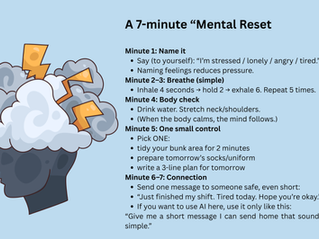Creating Psychological Safety in the Workplace
- IMEQ CENTER

- Aug 2, 2022
- 3 min read
Updated: Sep 12, 2023
Diversity is a key factor of the modern shipping environment that creates both opportunities for growth and innovation but also potential barriers to collaboration when not properly handled in the organization. The shipping industry is characterized by salient power hierarchies that often constitute a barrier to communication since people may feel challenged by authorities or power hierarchies to speak up, voice concerns, ask for help or offer feedback resulting in reduced learning opportunities, knowledge and increased conflict, all of which can compromise safety onboard. Psychological safety is a term coined with the work of Dr. Amy Edmonson, that describes an interpersonal workplace environment characterized by trust and respect, where people are free to express their thoughts, ideas and offer feedback; an environment where leaders model openness, accountability, invite input and practice inclusivity.
Psychological safety is “the shared belief that one will not be rejected or humiliated for speaking up in the workplace when expressing thoughts, concerns or ideas that may differ from others’ views”. A psychologically safe workplace encourages members the confidence needed to take interpersonal risk, to speak up in the group, with a focus on collective goals and problem prevention rather than encouraging self protection out of fear of being embarrassed, punished or rejected.
Surprisingly despite the importance of psychological safety in the workplace studies report that: only 47% of employees describe their workplaces as psychologically safe and healthy, 3 out of 10 employees strongly agree that their opinion does not count at work, while 85% of the respondents in a study examining employee experiences, reported that they did not raise their concerns although they believed the issue was important.
What does psychological safety look like in the workplace? When members:
Share ideas and opinions
Seek and give feedback
Being candid with one another
Demonstrate accountability
Show value and appreciation for ideas
Show care and concern for one another
Provide and ask for help
Engage in productive disagreement
Learn and experiment – taking reasonable risks
Why is psychological safety important? When people feel comfortable in sharing their ideas, they experience a sense of belonginess, feel valued and empowered to learn, and working towards creating a better organization. When organizations create a psychologically safe workspace they benefit in engagement, innovation, problem solving and performance. When organizations fail in creating a psychologically safe workplace, problems go unreported, opportunities for improvement missed and failures that could have been avoided occur; viability is at stake.
Why do people fail to speak up, voice their concerns and share their ideas? Because people are afraid to come across as ignorant, incompetent, and intrusive. Fear inhibits learning by impairing analytic thinking, creative insight and problem solving, qualities that could mitigate errors and mistakes.
In the maritime environment, failure of psychological safety encourages of culture of dangerous silence; when the crew hesitates to speak to the captain about a possible practical error? When the newcomer is afraid to ask a question because he fears of looking stupid? When the Chief Officer does not ask or listen to ideas because he will look incompetent? Dangerous Silence may be the sole proprietor of human error that accounts for nearly 80 percent of marine accidents, despite automation, technological advances and system designs. But how do organizations cultivate this Dangerous Silence?
How do organizations cultivate Dangerous Silence in the workplace?
Command and control hierarchy and leadership
Emphasis on reaching goals at the expense of candor
Leaders who fear the truth
Excessive confidence in authority
Managing impressions
Going along to belong
Complacency
Blame culture
A culture of silence
In a psychologically safe workplace, people experience trust, respect and confidence to voice and share their opinions, ideas, concerns for the greater good of the organization. Psychological safety can mitigate the disparities of diversity in the modern shipping environment and facilitate collaboration and viability.
Leadership Toolbox
Develop a framework that provides a safe and secure base for people to share. A climate that fosters trust and respect. Emphasize purpose. Set expectations or norms about failure, uncertainty and interdependence. Destigmatize failure.
Invite participation by expressing genuine interest and curiosity in peoples’ ideas. Ask good questions. Embrace modesty. Model active listening & empathy. Communicate care, respect and kindness.
Respond productively - by listening, validating and showing appreciation. Sanction clear violations of safety when repeated putting their safety and other people’s safety at risk.
Practice awareness by staying open, attentive and attuned to processes.
At IMEQ Center, seafarers are our priority. Our motto, “Happier Seafarers Safer Journeys”. We are committed to helping maritime companies and organizations create psychologically healthy and safe workplaces by providing recruitment services, mental health trainings, and consulting services to increase organizational well-being, optimize workplace safety and enhance employee satisfaction.





































































































Comments